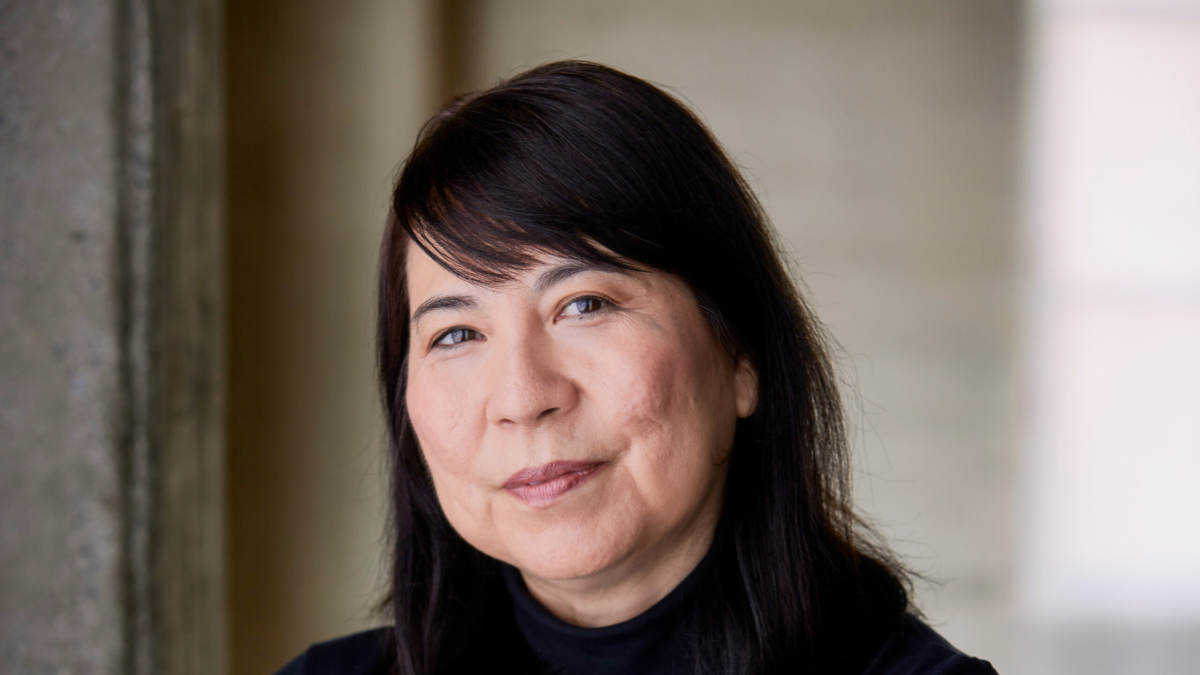The Woman Who Penned ‘Letters from Iwo Jima’ Has Never Stopped Writing
“If our children can sleep safely for one more day, it would be worth the one more day that we defend this island!”
So declares General Tadamichi Kuribayashi, played by Ken Watanabe, in Clint Eastwood’s 2006 war epic, “Letters From Iwo Jima.” The film, a follow up to Eastwood’s “Flags Of Our Fathers,” is the story of the Battle of Iwo Jima from the Japanese perspective. Despite having a much lower budget than its predecessor, and being subtitled, the film actually did better than its English language counterpart. In addition to selling more tickets — “Letters” made $68 million, while “Flags” made $65 million — it also received more Oscar nominations — with “Letters” getting nominated for four awards, and “Flag’s” getting nominated for two. But I’m not here to discuss Eastwood, subtitles, or even the Oscars. What I’m here to talk about is that line. Specifically, the woman who wrote it, Iris Yamashita, and what happened to her after she penned the film.
Born in Missouri, and raised in Hawaii, the young Yamashita was always a storyteller. But, as she joked in a 2021 interview with ForensisGroup, Inc, “having Asian parents, of course I had to earn my engineering degrees.” Despite this, she never gave up writing, taking night classes at UCLA Extension while working a day job at a software company. As she explained in a 2019 keynote address at the very same institution where she once studied, “I knew in my heart of hearts that I was a writer, not an engineer.” This training at UCLA gave her the confidence to submit her scripts to various festivals, including the Big Bear Lake screenwriting competition. It was here that she met her future agent, Cathy Tarr of CAA, after one of her screenplays took home first prize. And it was through CAA that Yamashita got the chance to write “Letters.”
Clint Eastwood was working on “Flags of our Fathers,” a film about the Americans who fought at Iwo Jima, when he decided to make another movie, showing the same battle from the Japanese perspective. He initially asked Paul Haggis, who’d already penned “Flags” and “Million Dollar Baby” to write the script. But Haggis didn’t want to. So the call was put out that Clint Eastwood was looking for a writer, and since Haggis and Yamashita were both represented by CAA, she heard about this once-in-a-lifetime opportunity. Her agent sent Haggis and Eastwood the script she’d won Big Bear with, even though she didn’t think she had much of a chance, since, as she explained to ForensisGroup, “some of [my agent’s] colleagues thought that I’d never get the job because they thought that women can’t write war movies.” But, to her delight, Eastwood liked her script, and she was hired. And, in the end, she was able to prove her naysayers wrong, since “Letters” became a huge success.
It was a hit at the box office, raking in $68 million on a $16 million budget. It earned rave reviews, with it currently holding a 91% approval rating at Rotten Tomatoes and an 89% approval rating on Metacritic. And Yamashita herself earned an Academy Award nomination for Best Original Screenplay. She didn’t win, but, as she later joked in her 2019 keynote address, “I got the elusive approval of an Asian dad, which at the end of the day was the bigger prize.” And that is where most tellings of her story end. Which, by itself, is wrong.

(Image Credit: Warner Bros. Pictures)
An Oscar nomination is a huge achievement. Especially when you consider that this was in the early 2000s, and Yamashita was a first-time, female, Asian American writer. Back then, there wasn’t much of a demand for diverse voices in Hollywood, and there weren’t many other Asian women writing blockbusters. As Yamashita explained to me in an interview conducted over email, “If you look at the statistics, back when I started it was pretty dismal for women writers of color. According to WGA reports, in 2010, 83% of working screenwriters were male and a whopping 95% of screenwriters were white.” Granted, we still don’t have a ton of Asian women writers in the film industry, but at least there are now people like Adele Lim — “Crazy Rich Asians” — and Christina Hodson — “Birds of Prey” — working on big projects. Back in 2006, though, Yamashita was more or less alone. And the fact that she was able to come out of the gate swinging might lead you to think she’d have a ton of job offers after “Letters’” success. But you’d be wrong.
It’s been more than 15 years since “Letters From Iwo Jima” came out, and Yamashita hasn’t had a single film produced since then. And as she informed me in the email interview, it wasn’t for lack of trying.
“I was contracted to write a couple of scripts after that,” she explained, “which ultimately did not get greenlit, and then there was a long, wasteland of nothing which took place during and after the Writers Guild strike. I felt I was constantly working and schlepping, pitching and campaigning. I often had really great directors and producers on board certain projects, but when it came to the buyers, meaning studios or networks, no one was biting.”
When I asked her why her work never got greenlit, given her early success, she told me, very plainly, that studios weren’t interested in “Asian stories,” which, according to her, is all they thought she could write.
“I think with any writer,” she reflected, “you become known for a ‘brand’ and that is either your first film or the first film that was successful and that is where you are expected to stay. So for me, that would be Asian stories. It was a highly noncommercial brand for a while, but I think that is changing.”
Despite all of this rejection, Yamashita hasn’t given up on writing. And, thankfully, things do appear to be looking up for her. She has a mystery novel, “City Under One Roof,” coming out next year. And the increased popularity of Asian centric films and TV shows, which, as she quipped over email, are ”no longer pariahs but acceptable and even wanted,” has given her the confidence to pitch a film about World War 2 internment.

A promotional poster that includes “City Under One Roof” (Image Credit: Penguin Random House)
This is all very good, and it might be easy to just sit back and think, “well, it took a while, but at least everything worked out in the end.” But Yamashita’s story should serve as a lesson, not just for female and POC creatives, but for Hollywood executives, that more needs to be done. Getting your foot in the door doesn’t mean that door will stay open. Even if you experience great success, as she did, if there aren’t other people like you around to provide support, the system can sideline you for being “too niche.” As Yamashita explained regarding “Letters From Iwo Jima’s” unique legacy, “Hollywood’s attitudes towards cultural authenticity were pretty low at the time, so this was clearly an outlier film and I have to credit both Clint Eastwood and Paul Haggis for the opportunity they gave me.”
But that shouldn’t be the case. Women and people of color shouldn’t have to wait for some benevolent white executive to “grant” them the opportunity to work in film because they want “authenticity.” And they shouldn’t be restricted to only writing stories about their own community. In an ideal world, up-and-coming writers would get trained in studio-funded incubator programs, which would then lead to real, paying jobs writing movies. This is what happens in television, and it’s precisely why Yamashita has urged young writers to work there, like she did in her 2015 Asian Voices TV interview. Because, as she informed me over email, those kinds of programs just aren’t there in film. “There haven’t been mandates in the world of film until very recently (2020),” she explained, “when the Oscars outlined representation and inclusion standards. […] but I wouldn’t say that they lead to jobs.”
Yes, there are more women and people of color in Hollywood now than when Yamashita started off in the early 2000s, but there still aren’t nearly enough. And the system is still set up in such a way that writers can toil for years on end without any guarantee of a paycheck. It’s part of the reason why Yamashita has transitioned to writing novels, where paid contracts are the norm. If only screenwriters had such deals.
Let’s hope that, someday, people like Iris Yamashita will not only get to make movies, but keep making them. And that they get the payment they deserve. Because her story – the story of a talented writer sidelined by an industry that couldn’t be bothered to find a use for her – is not one we need to see again.

